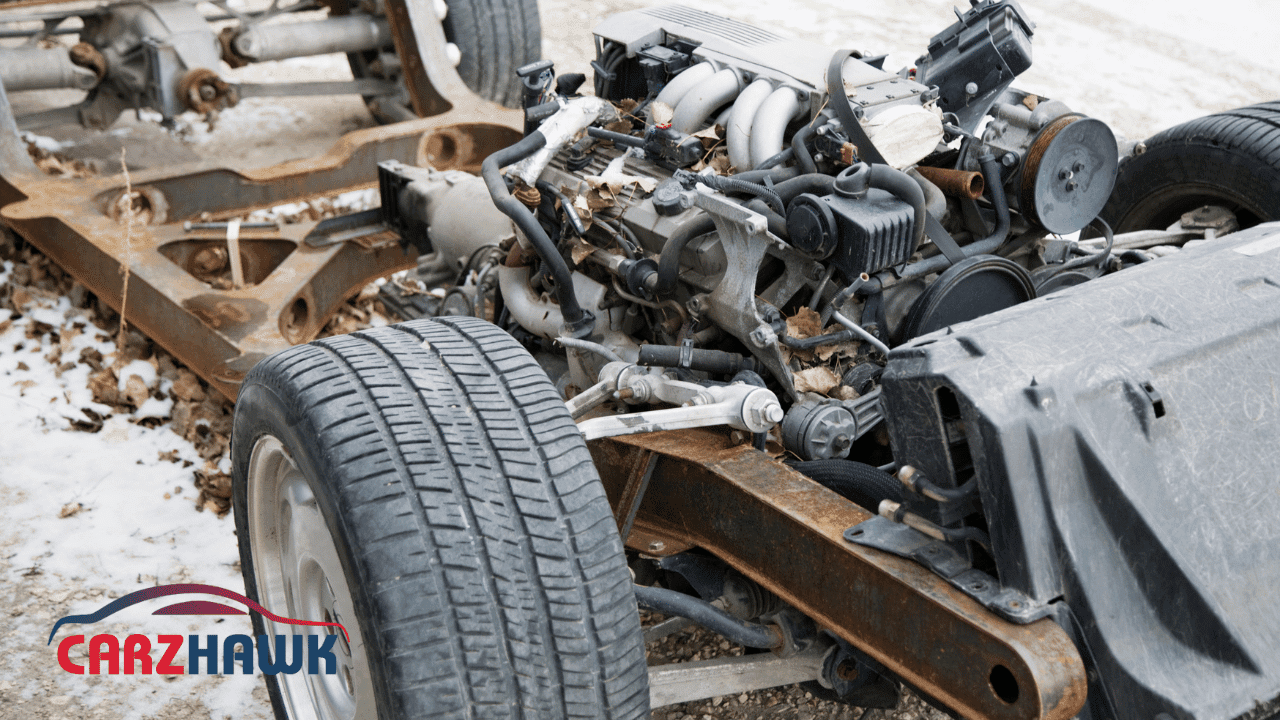Differential Fluid, which is another name for differential fluid, is an essential part of your car. It keeps the gears in the differential from rubbing against each other and wearing out. The differential lets your wheels spin at different speeds when you turn, which makes the car stable and easy to control.
This vital fluid helps the gears get rid of the heat they make while they’re working and keeps them from rusting or corrosion. By holding the differential in your car correctly oiled, you can make sure it runs smoothly and lasts longer.
Every car has a differential. A differential can be in the front or back of a vehicle. Some cars have differentials on both sides.
The rear differential will need a different kind of oil if your front differential has a transaxle built in.
When a car has a front differential with a built-in transaxle, it usually needs a fully synthetic oil, such as Oil SAE 75 to 85. The back differential needs oil that is about SAE 90 thicker.
Best Time to Change the Rear Differential Fluid
A lot of car companies say that you should change the fluid in your rear differential every 30,000 to 60,000 miles. To find out the exact mileage, look in your car’s owner’s guidebook.
The faster you drive, the shorter this interval gets. Most manuals have a section called “severe driving conditions” that will tell you about shorter interval. Especially If any of the conditions mentioned apply to your situation, and how you plan to use the car.
If you want to make sure everything runs smoothly, have a skilled mechanic change the fluid when you’re ready. The job is dirty, and the differential fluid needs to be thrown away the right way.
Some differentials have plugs that make it easier to drain and fill. In some cases, a new gasket will need to be put in, and any contaminants from the old fluid will need to be cleaned off of the parts of the differential box. That way, these contaminants won’t get into the new fluid and make it less safe.
Best Time to Change the Front Differential Fluid
A manual transaxle and front differential may share a housing. Every 25,000 to 30,000 miles, especially the oil in the front differential may need to change. Again, check your owner’s guidebook to make sure you know the exact mileage for your car.
You change the fluid in both the manual transaxle and the front differential at the same time because they use the same fluid. Just like with the back differential, you should only let a licensed mechanic change the fluid in the front differential unless you’re sure you can do it yourself.
If you decide to change the differential oil yourself, you should know that it will be messy. It’s hard to get gear oil out of your clothes because it’s thick and smells terrible. There is a drain plug in some back differentials, but you need to take off the housing cover on other ones.
Get a large catch pan ready and put a plastic drop cloth under it. Start your car and drive it around the block a few times to warm up the oil. After that, put on work clothes and get ready to get dirty. Wear gloves if the gear oil is at or close to working temperature to avoid getting burned.
You could, of course, hire a plumber instead of getting dirty. Also, hiring a pro will make sure the job is done right, which means you’ll be safer and less likely to make mistakes.
Cost of Differential Fluid Change
It’s not too expensive to change the differential fluid. The fluid can cost anywhere from $20 to $80, and the work can cost anywhere from $60 to $120. It will cost between $80 and $200 to change your differential fluid, based on the type of car you have, where you take it, and how much fluid it needs.
In most cases, you’ll need between 1 and 4 quarts of oil to fill up each differential. This will depend on the type of the car.
Please keep in mind that the price listed above is only for one different housing. Depending on how often you service your all-wheel drive car, you may have to pay twice as much.
Not Changing Differential Fluid Can Cause Problems
If you don’t change your differential fluid, you might have a lot of problems down the road. This gear oil, like engine oil, is needed to keep the transmission system in your car from slipping. You’ll start having problems that could have been easily avoided if you don’t do this part of upkeep.
For example, the amount of friction will rise over time as the fluid loses its effectiveness. This could cause the clutch and transmission parts of your truck to wear out faster. When gears rub against each other without enough oil, they wear out faster than they should, which will require expensive fixes in the future.
Another problem that could happen is the differential making annoying noises, like a whining sound. If your car is making these noises, the oil needs to be changed right away to keep the transmission from getting worse.
So, to keep your car running well and its parts lasting a long time, because it’s essential to change the differential fluid when the maker says to. This way, you’ll escape the headaches that could happen if you don’t do this vital maintenance task.










